- Home
- Heather Graham
Lie Down in Roses
Lie Down in Roses Read online
THEY WERE BITTER ENEMIES, AND YET . . .
“Who are you?” Tristan demanded. “I came to meet the lord of the castle—not a woman.”
“The lord of the castle is quite dead, and has been since the fourth day of battle.”
Tristan walked slowly around her, his hands on his hips. “So,” he said at last, “where, then, is his son, his brother, his cousin, or the man to take his place?”
“I, sir, am ‘lord’ of the castle.”
“Then it is you who has caused these further days of futile suffering and death!” Tristan spat out at her.
“I?” She raised a honey-colored brow. “Nay, sir, I did not set out to attack, to divest others of their home. I have only sought to keep what is mine.” She lifted her head. “I ask you, my lord, is there no hope of mercy?”
Her voice was soft, like velvet. He heard in it a plea, and more. Something twisted inside of him, something made him ache ...
Desire.
It was sudden, stark, and painful.
Tristan laughed harshly. “Lady, just what is it you can offer in return?”
“Myself,” she said simply. “As wife, mistress, concubine, or whore.”
His mocking smile spread. “I’ve never purchased without sampling the merchandise.” He tilted her chin and seared her lips with his own ...
More sweeping historical romance by Heather Graham
Princess of Fire
The Kings Pleasure
Come the Morning
Conquer the Night
Knight Triumphant
Seize the Dawn
The Lion in Glory
When We Touch
Ondine
HEATHER GRAHAM
LIE DOWN IN ROSES
ZEBRA BOOKS
KENSINGTON PUBLISHING CORP.
http://www.kensingtonbooks.com
All copyrighted material within is Attributor Protected.
Table of Contents
THEY WERE BITTER ENEMIES, AND YET . . .
More sweeping historical romance by Heather Graham
Title Page
Copyright Page
Dedication
Prologue
One
Two
Three
Four
Five
Six
Seven
Eight
Nine
Ten
Eleven
Twelve
Thirteen
Fourteen
Fifteen
Sixteen
Seventeen
Eighteen
Nineteen
Twenty
Twenty-one
Twenty-two
Twenty-three
Twenty-four
Twenty-five
Twenty-six
ABOUT THE AUTHOR
ZEBRA BOOKS are published by
Kensington Publishing Corp.
119 West 40th Street
New York, NY 10018
Copyright © 1988 by Heather Graham Pozzessere
Previously published under the name Shannon Drake in December 1988.
All rights reserved. No part of this book may be reproduced in any form or by any means without the prior written consent of the Publisher, excepting brief quotes used in reviews.
To the extent that the image or images on the cover of this book depict a person or persons, such person or persons are merely models, and are not intended to portray any character or characters featured in the book.
If you purchased this book without a cover you should be aware that this book is stolen property. It was reported as “unsold and destroyed” to the Publisher and neither the Author nor the Publisher has received any payment for this “stripped book.”
Zebra and the Z logo Reg. U.S. Pat. & TM Off.
ISBN: 978-1-4201-3820-7
eISBN-13: 978-1-4201-4700-1
eISBN-10: 1-4201-4700-5
Dedicated with all my love
and best wishes to my mother,
Violet Graham,
and to William Sherman,
on the occasion of their anniversary.
Bill we are so very happy to have you!
Prologue
October 15th, 1483
“Needs must a maid be fair of face?
Needs must a maid be full of grace?
Way!
Ah, but a man’s cares she must erase,
And, ah! her ... limbs!—his love embrace!”
It was Sir Thomas Tidewell singing the boisterous ballad, loud and clear against the cool, darkening horizon. Sir Thomas was deep in his cups and he laughed so hard that he rocked sideways upon his mount. But for the fact that Jon of Pleasance rode next to him to right him, Sir Thomas would have crashed to the ground.
Jon was nearly as inebriated as Thomas; he threw an arm around his friend’s shoulder, and thus they balanced on their horses to sing the ribald refrain together.
“Nay, she needn’t have a face!
Be slim, be witty, or of noble grace.
She needs but love a man’s embrace,
Embrace in turn! His sword ... encase! ”
As Jon righted himself, Thomas nearly fell again; he was steadied that time by the hereditary leader of their grouping, Tristan de la Tere, second son of the Earl of Bedford Heath. Jon grinned engagingly at Tristan, and Tristan arched a dark brow and grinned in return, shaking his head with resigned patience. The three had come from London, where Tristan had been embroiled in lengthy discussions of Richard III’s accession to the throne. Did Richard’s action constitute a seizure? Or was it a legitimate deed, made necessary because the rightful heir was but a boy of twelve—too weak to manage a countryside ravaged by what poets were calling the “Wars of the Roses”?
The difficulty did not end there. For years different factions of the Yorkist branch of the family had been scrambling for power—petty wars within the larger wars. Tristan de la Tere’s family had managed to stay out of the internal conflicts. Tristan, barely into his teens, had battled for King Edward IV against Warwick the Kingmaker. Edward’s reign had then witnessed a certain quiet. But with the death of Edward IV in 1483, Richard, Duke of Gloucester, took the crown from his nephew, Edward’s son and heir. Tristan knew that there was trouble to come. Moreover this was trouble in which Tristan could not remain unaligned.
“Sing, Tristan!” Jon demanded. “You know the words!”
“He knows the words,” Thomas agreed, adjusting his cap upon his head, “but he does not know the feeling. Ah, those fine ladies, that fine, sweet flesh we enjoyed so at Mr. Wal-cox’s tavern!” He jabbed a finger accusingly at Tristan. “And you would not touch a one of them. Fie, my liege, my lord! You were the devil himself before marriage overtook you! No man knew better how to drain his ale and send the most seasoned fine young thing swooning—lady or slut!”
Tristan arched a brow once again at his friends in silence, his mouth curled slightly into a smile. These were young men—young and in their prime; hard and muscled from endless days in the saddle, from battles waged, from tournaments. Born into the fratricidal struggle for the crown between the houses of York and Lancaster, they had unwittingly been bred and tuned like soldiers—for survival.
And it was to Tristan that this heavy responsibility fell. He was the second son of the Earl Eustace of Bedford Heath; the land from which they all sprung was his father’s domain. Eustace could call forth a thousand retainers at any time; his farms stretched across the horizon farther than the eye could see, and the wool that his farm manufactured was famous by name across the Channel. Tristan’s elder brother would someday take his father’s place and title; but Tristan—unlike many younger sons—had not turned to the Church. Instead he had been granted large tr
acts of family land. Eustace had freed all of his bondsmen, but Tristan held loyalty from hundreds of tenants, yeomen, and the nearly noble gentry such as Thomas and Jon. From the time he had been a lad Tristan had been imbued with the weight of responsibility that would come his way. He could drink with his friends, but he never allowed himself to reach their stage of drunkenness. Nor could he ever stay free of politics. Tristan could not forget that loyalties were sometimes forced upon men, sometimes chosen—but always demanded a high price.
On this fall day, as the three young friends made their way home, things seemed quiet enough. But Tristan suspected that his countrymen would soon be fighting once more. Richard had deposed his nephew and taken the Crown, and in London the move had been accepted; the Crown needed strength. Tristan had reserved judgment on the undertaking. He felt that perhaps it was better for Richard—older, skilled, a grown man—to take the reins of the country, at least until the heir, a bookish, petulant boy, should reach maturity.
But then that boy and his younger brother had disappeared from their Tower prison. And the rumor was heard that Richard had ordered the murder of his own nephews.
Tristan, as son of a noted peer of the realm, had voiced a demand that the boys be shown. Richard had been evasive, but Tristan had not backed down. Then Buckingham, who had been Richard’s staunchest supporter when he reached for the throne, had turned traitor and was causing insurrection in the south. Tristan had refused to become involved, telling Richard he would not take up arms on his behalf until the king proved himself innocent of the children’s deaths.
So matters stood as they rode north from London that evening, Thomas and Jon sodden, Tristan amused but quietly thoughtful. He was anxious to reach the grand castle he had just completed building, a place that was inodern, built for comfort rather than defense. It was a beautiful home, and more beautiful still was the thought that his wife, Lisette, awaited him there.
“Ah, look at that, will you, Jon?” Thomas demanded disgustedly. “Look at his face! The man has no sense of debauchery left! He is thinking of her.”
Jon laughed. “Well, I might think of her, too—were she mine to dwell on.”
“But she’s his wife!” Thomas complained. “Wives, bah! They are delicate little things of fine family who bring in wealth and property. Tristan, dear, dear friend, my dear Lord Tristan! You’re not supposed to enjoy her, you know! The good wenches at the taverns are put there just for enjoyment!”
Tristan laughed out loud and drew his horse close to Thomas’. He set an arm about the young man’s shoulders and shook his head sadly. “Thomas, Thomas! Son, boy, child! You are wrong. A whore is but love that is purchased, and never could love that is bought be so exquisite as that which is freely given and shared! Think of your song, Thomas! My wife loves me. Never once has she been less than eager to greet me. And yet her face is the fairest ever: a face that shines, eyes that sparkle into mine.... Nay, Thomas, how could I ever want another? Her scent is sweet, the taste of her flesh is as clean as spring air—while your whores smell like a sow pen!”
“Marriage has ruined him,” Thomas told Jon ruefully.
Tristan cast back his head and laughed, and Jon looked at his dancing eyes—eyes so dark they seemed like night and ink when indigo was their true color—and grinned along with him. Tristan and Lisette were indeed a happy couple. Their marriage had been arranged but in six months they found themselves more content with each other than either could have hoped. Tristan was tall as an oak and muscled like a thoroughbred stallion; Lisette was a glorious beauty, with an abundance of dark shimmering hair, an ever-gentle manner, a musical voice, and the face of an angel. A marriage like theirs so seldom happened; it was a union made in heaven. And to complete that happiness, Lisette now carried Tristan’s heir.
Thomas glanced wryly at Jon. “My God—he sounds like a poet!” Then he smiled at the man to whom he owed his allegiance, “Ah, she’s fair, m’lord! Like the angels are fair, and blessed and beautiful. And sweet—too sweet and good for you, oh roughened knight! But, sir! ’Tis sport of which we speak here—”
Jon interrupted laughing.
“Thomas! You were married off to a rich widow with a most luxurious mustache! What could you know of Tristan’s happiness!”
Tristan couldn’t help laughing aloud at that. True, indeed, Thomas’ wife was wealthy, the daughter of a merchant in gold; and although she was nearly as ugly as a hag, her wit was quick and Tristan was quite fond of her. Also in one year of marriage she had produced a lusty, healthy baby boy for Thomas, and therefore he could find little to complain about.
“A pox upon you, Jon!” Thomas cried in mock horror. “If you marry—if ever you find a woman to bear the sight of that pretty face on a man!—may your wife be as frigid as a nun!”
Jon was about to answer Thomas, but his words died in his throat: for the frown on Tristan’s face was so severe that Jon was taken aback. Tristan was a tall, good-looking man—handsome when he laughed, but frightening when he did not. There had been many times when Jon had counted his blessings for being on Tristan’s side, for the young lord was a lethal foe.
He wore that lethal expression now, as if night’s shadow had cast itself over his features: troubled, wary, dangerous.
“Tristan, what ... ?” Jon followed his superior’s gaze focused some way distant.
And then Jon saw. They had come upon a cottage on the outskirts of Tristan’s lands. Darkness was falling quickly and it was not easy to see, but even in the shadow it was apparent that the cottage had been burned. Smoke still drifted up on the night air.
Tristan urged his mount forward at a gallop. Jon and Thomas, instantly sober, followed. Tristan leapt from his horse before the stone cottage, bending low to the ground over an old farmer. He touched the man’s throat and drew back, studying the blood that bathed his fingers. It was still warm.
Jon and Thomas dismounted and were at Tristan’s side. Tristan stood again quickly. With long strides he headed for the smoking cottage and entered through the burned-out doorway. Jon stood with Tristan before the door. In amazement they saw that someone had savagely destroyed the contents of the little house before setting it afire.
Behind them, Thomas inhaled sharply. They all saw the woman’s body at the same time. Tristan strode to her and knelt beside her in unspeakable horror. She had been stripped naked and brutally assaulted, and then left to die in the burning house.
“My God,” Tristan cried out. “Why? Ned was just a farmer, tilling his fields; Edith but a simple farmer’s wife ...”
His voice trailed away and then he straightened suddenly, rigid with terror.
“My God,” he gasped again. Jon and Thomas could read the ragged fear on his features, hear the panic in his voice. He said nothing else but crossed swiftly to his horse and remounted in a blur of movement. Jon and Thomas raced behind him and mounted, both struck dumb with the horror of their friend’s fear.
Murder, heinous murder, committed here on poor, harmless peasants. What then awaited them at their grand manors?
They galloped, madly, down the road, the horses tearing up the turf of autumn. Before they had journeyed far, they again saw smoke against the night sky. All around them the land lay devastated. Cottages were burned to the ground, gardens trampled, fences broken.
And the landscape was a wasteland of corpses.
At last Tristan came by the road of his castle—a castle built for a life of peace. With an unbelieving dismay he saw the bodies of his men-at-arms upon the ground here and there, on the bridge before the moat, the moat with the swans that Lisette loved so dearly.
As if the carnage he had seen on the road had not been enough of a portent! Lisette’s beautiful long-necked swans, floated dismally in pools of blood—no longer the embodiment of grace, but decapitated, ugly carcasses.
Jon watched as Tristan dismounted, his face drawn into a horrible mask of fear. Tristan came to the first of his retainers, the captain of his home guard; that stalwart and
loyal man lay bleeding where he had fallen at the door—defending until the end. Tristan fell to his knees, lifting the fellow’s bloody head into his arms. “Sir Fielding! ’Tis I, Tristan. Can you see me? Can you speak?”
“Ah, lord!” The man found strength to clasp his hand. “Forgive us,” he gasped weakly, “we failed you.... We knew not what came! Men . . . men in armor, with no badges . . . no pennants. They stormed upon us ... we would have greeted them in the King’s name! They ravaged. . . they murdered—but said not why. My lord . . .”
There were tears in his eyes. Tristan reassured him hastily, and in greater haste demanded, “My lady, Sir Fielding? My lady wife?”
Tears flowed more freely from Fielding’s eyes.
“I know not,” he said simply.
Jon came to Tristan’s side, and the two raced across the bridge and into the hall. All was silence.
And all was death.
He stepped over one of Lisette’s maids, a young girl who had been brutally slain and left with her skirts about her throat. Had another horror preceded her dying? More of the guard lay dead and dying, in pools of blood upon the floor.
“Lisette!”
Tristan screamed out her name, in prayer, in hope, in grave and horrible fear. His footsteps took him to the stairway as he desperately raced that distance. He searched from chamber to chamber, screaming her name again and again. There was no answer.
He came to the nursery. A small chamber beside his own, where already a cradle, woolen garments, and fine small silks and linens awaited his child.

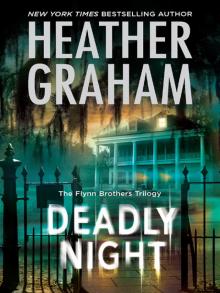 Deadly Night
Deadly Night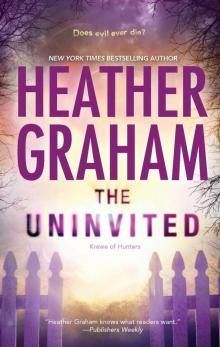 The Uninvited
The Uninvited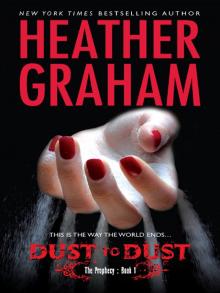 Dust to Dust
Dust to Dust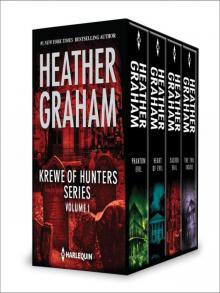 Heart of Evil
Heart of Evil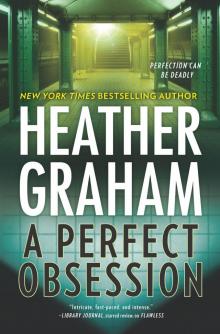 A Perfect Obsession
A Perfect Obsession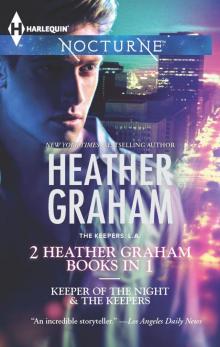 The Keepers
The Keepers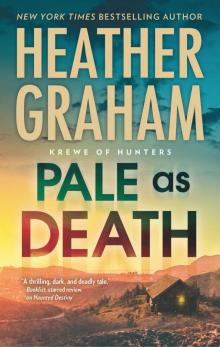 Pale as Death
Pale as Death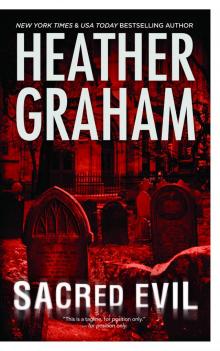 Phantom Evil
Phantom Evil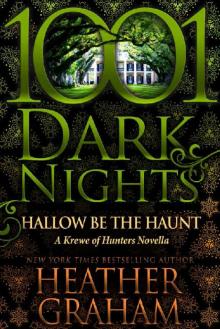 Hallow Be the Haunt
Hallow Be the Haunt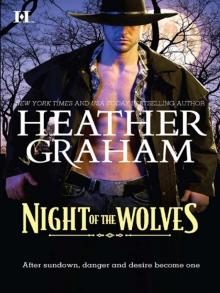 Night of the Wolves
Night of the Wolves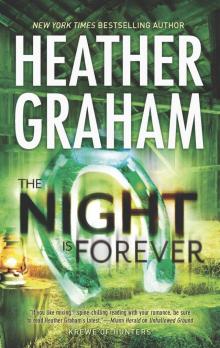 The Night Is Forever
The Night Is Forever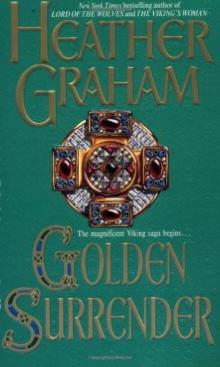 Golden Surrender
Golden Surrender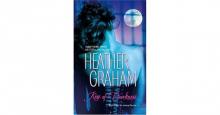 Kiss of Darkness
Kiss of Darkness Beneath a Blood Red Moon
Beneath a Blood Red Moon A Dangerous Game
A Dangerous Game Ghost Shadow
Ghost Shadow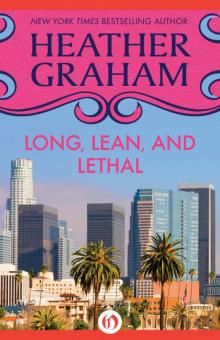 Long, Lean, and Lethal
Long, Lean, and Lethal Fade to Black
Fade to Black The Rising
The Rising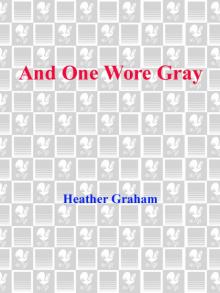 And One Wore Gray
And One Wore Gray Rebel
Rebel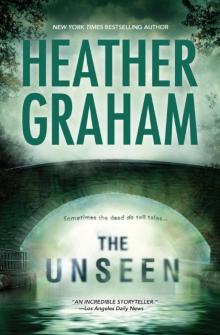 The Unseen
The Unseen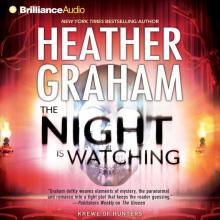 The Night Is Watching
The Night Is Watching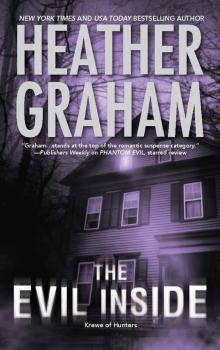 The Evil Inside
The Evil Inside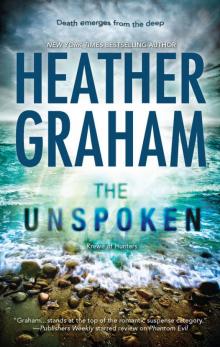 The Unspoken
The Unspoken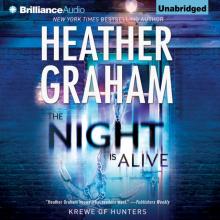 The Night Is Alive
The Night Is Alive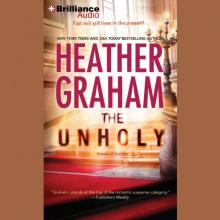 The Unholy
The Unholy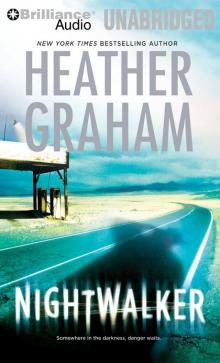 Nightwalker
Nightwalker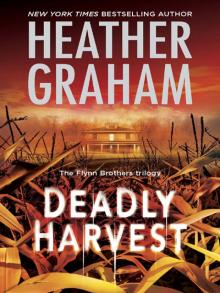 Deadly Harvest
Deadly Harvest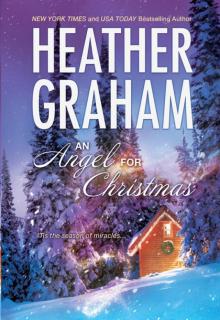 An Angel for Christmas
An Angel for Christmas A Pirate's Pleasure
A Pirate's Pleasure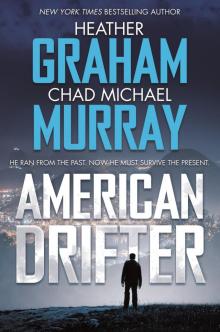 American Drifter
American Drifter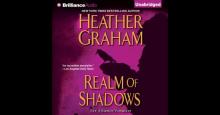 Realm of Shadows
Realm of Shadows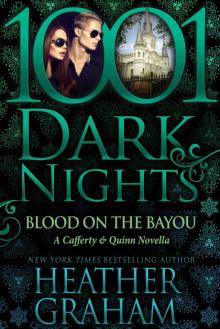 Blood on the Bayou
Blood on the Bayou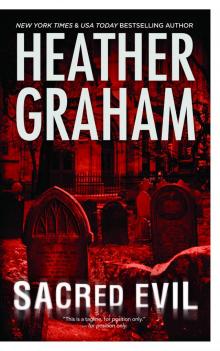 Sacred Evil
Sacred Evil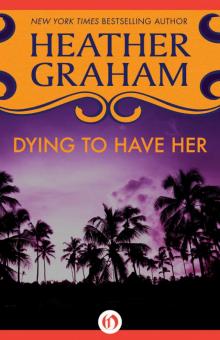 Dying to Have Her
Dying to Have Her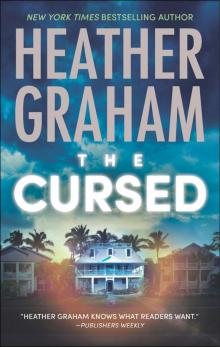 The Cursed
The Cursed Captive
Captive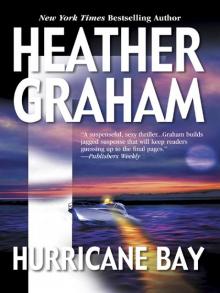 Hurricane Bay
Hurricane Bay Drop Dead Gorgeous
Drop Dead Gorgeous Ghost Memories
Ghost Memories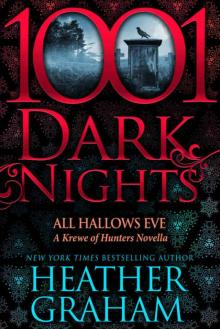 All Hallows Eve
All Hallows Eve Dying Breath
Dying Breath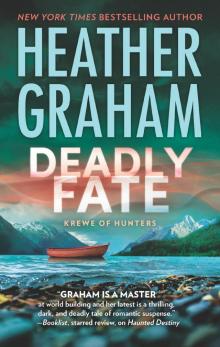 Deadly Fate
Deadly Fate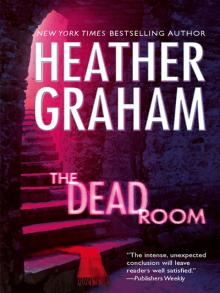 The Dead Room
The Dead Room Lord of the Wolves
Lord of the Wolves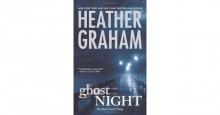 Ghost Night
Ghost Night Ghost Walk
Ghost Walk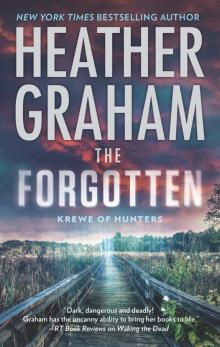 The Forgotten
The Forgotten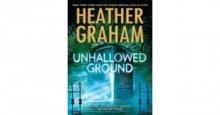 Unhallowed Ground
Unhallowed Ground One Wore Blue
One Wore Blue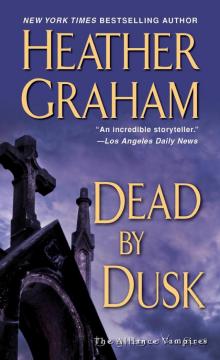 Dead By Dusk
Dead By Dusk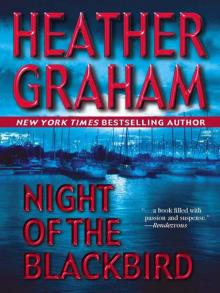 Night of the Blackbird
Night of the Blackbird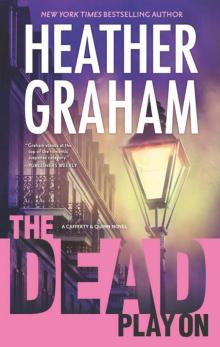 The Dead Play On
The Dead Play On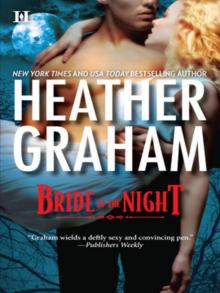 Bride of the Night
Bride of the Night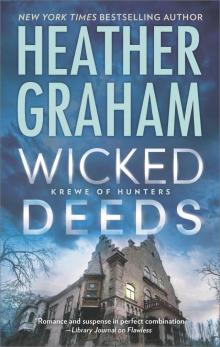 Wicked Deeds
Wicked Deeds The Forbidden
The Forbidden Triumph
Triumph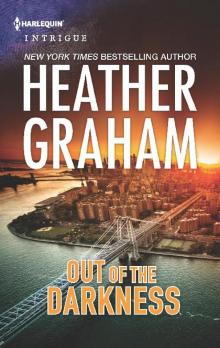 Out of the Darkness
Out of the Darkness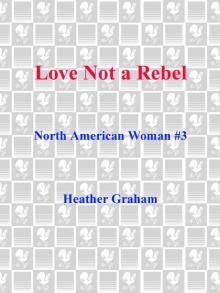 Love Not a Rebel
Love Not a Rebel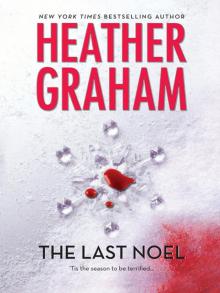 The Last Noel
The Last Noel Tall, Dark, and Deadly
Tall, Dark, and Deadly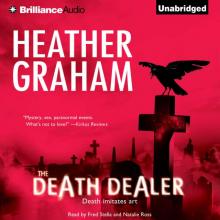 The Death Dealer
The Death Dealer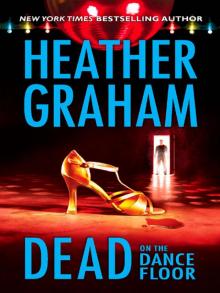 Dead on the Dance Floor
Dead on the Dance Floor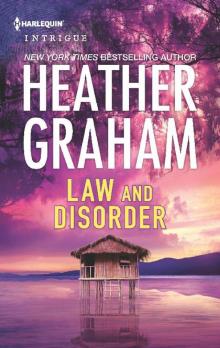 Law and Disorder
Law and Disorder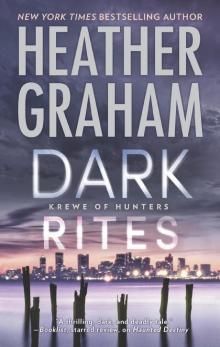 Dark Rites
Dark Rites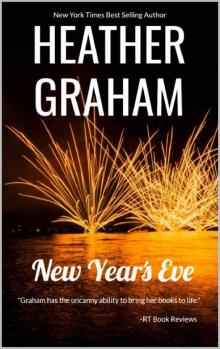 New Year's Eve
New Year's Eve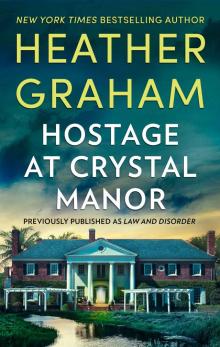 Hostage At Crystal Manor
Hostage At Crystal Manor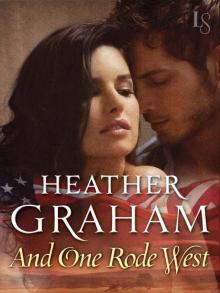 And One Rode West
And One Rode West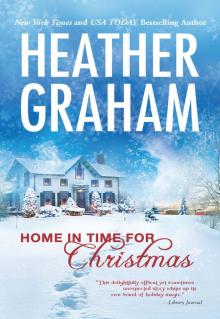 Home in Time for Christmas
Home in Time for Christmas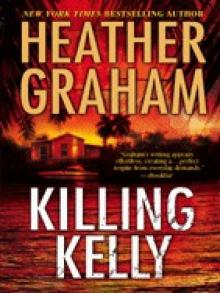 Killing Kelly
Killing Kelly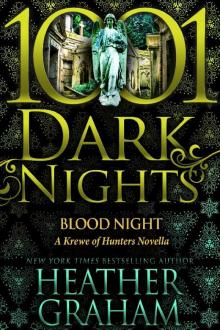 Blood Night
Blood Night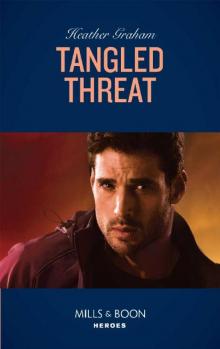 Tangled Threat (Mills & Boon Heroes)
Tangled Threat (Mills & Boon Heroes)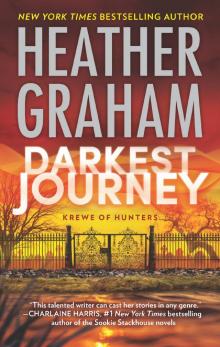 Darkest Journey
Darkest Journey Glory
Glory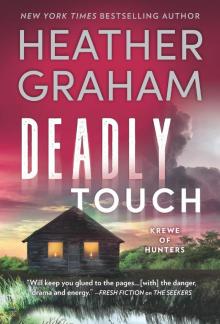 Deadly Touch
Deadly Touch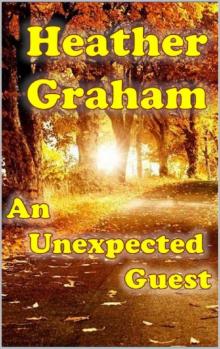 An Unexpected Guest
An Unexpected Guest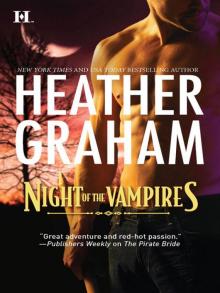 Night of the Vampires
Night of the Vampires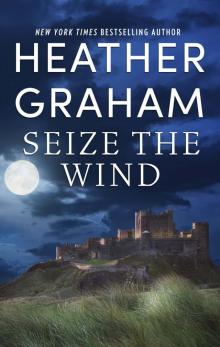 Seize the Wind
Seize the Wind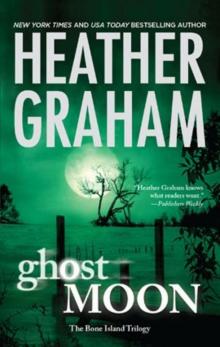 Ghost Moon
Ghost Moon The Vision
The Vision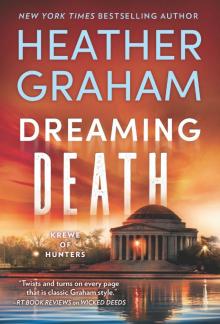 Dreaming Death
Dreaming Death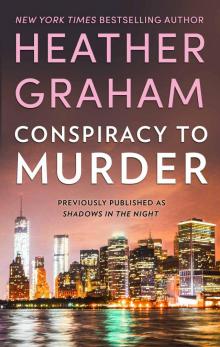 Conspiracy to Murder
Conspiracy to Murder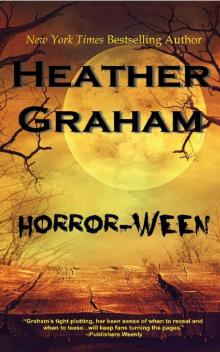 Horror-Ween (Krewe of Hunters)
Horror-Ween (Krewe of Hunters)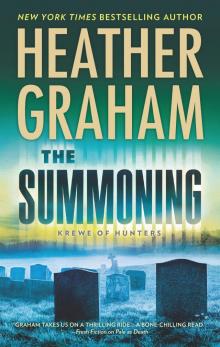 The Summoning
The Summoning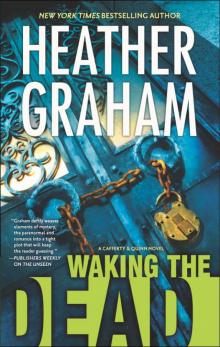 Waking the Dead
Waking the Dead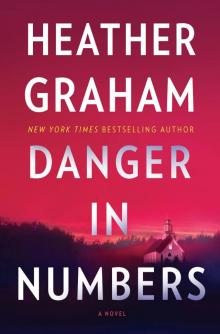 Danger in Numbers
Danger in Numbers The Hidden
The Hidden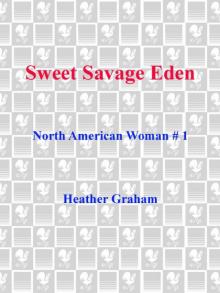 Sweet Savage Eden
Sweet Savage Eden Tangled Threat ; Suspicious
Tangled Threat ; Suspicious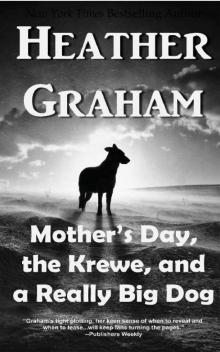 Mother's Day, the Krewe, and a Really Big Dog
Mother's Day, the Krewe, and a Really Big Dog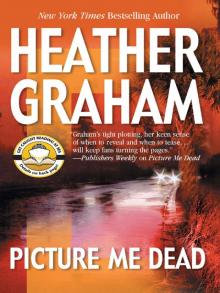 Picture Me Dead
Picture Me Dead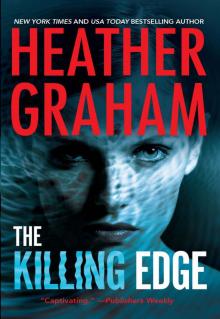 The Killing Edge
The Killing Edge St. Patrick's Day
St. Patrick's Day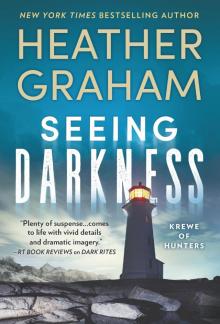 Seeing Darkness
Seeing Darkness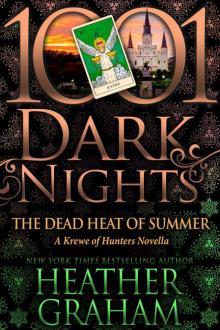 The Dead Heat of Summer: A Krewe of Hunters Novella
The Dead Heat of Summer: A Krewe of Hunters Novella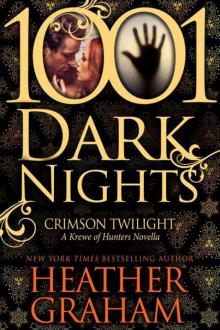 Crimson Twilight
Crimson Twilight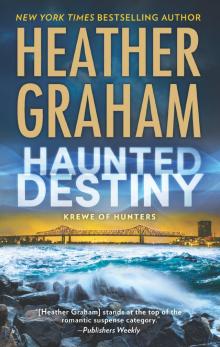 Haunted Destiny
Haunted Destiny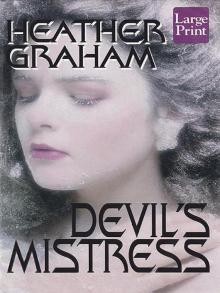 Devil's Mistress
Devil's Mistress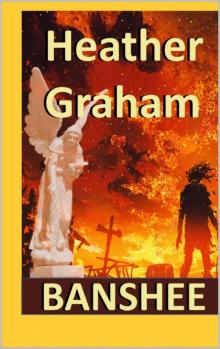 Banshee
Banshee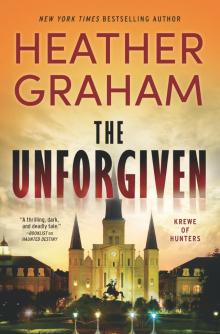 The Unforgiven
The Unforgiven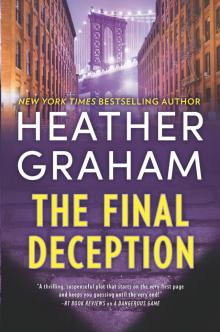 The Final Deception
The Final Deception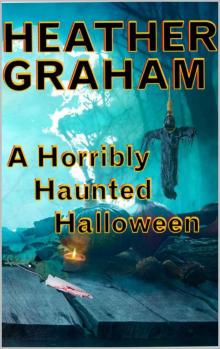 A Horribly Haunted Halloween
A Horribly Haunted Halloween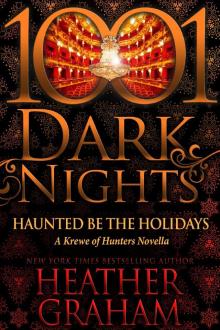 Haunted Be the Holidays
Haunted Be the Holidays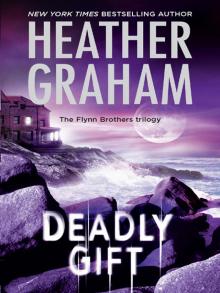 Deadly Gift
Deadly Gift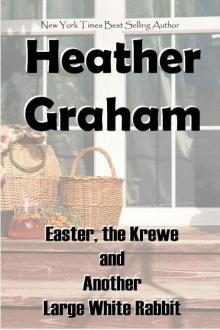 Easter, the Krewe and Another Large White Rabbit
Easter, the Krewe and Another Large White Rabbit Haunted
Haunted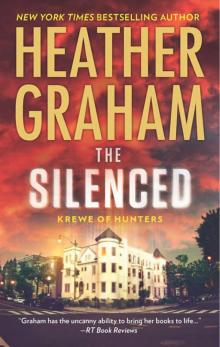 The Silenced
The Silenced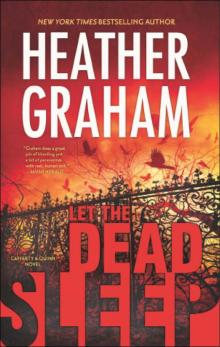 Let the Dead Sleep
Let the Dead Sleep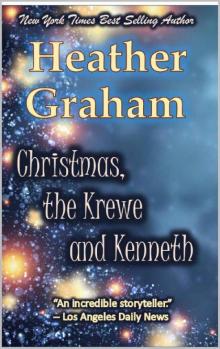 Christmas, the Krewe, and Kenneth
Christmas, the Krewe, and Kenneth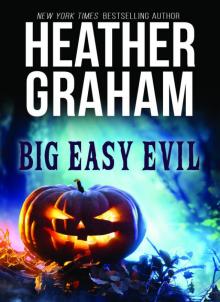 Big Easy Evil
Big Easy Evil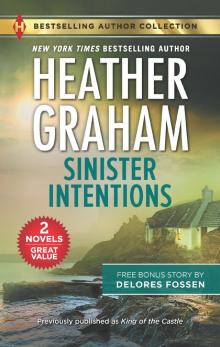 Sinister Intentions & Confiscated Conception
Sinister Intentions & Confiscated Conception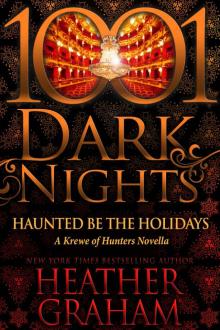 Haunted Be the Holidays: A Krewe of Hunters Novella
Haunted Be the Holidays: A Krewe of Hunters Novella Blood Red
Blood Red A Perilous Eden
A Perilous Eden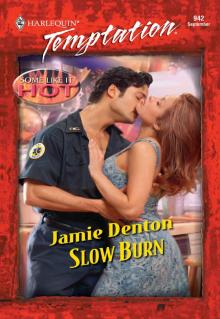 Slow Burn
Slow Burn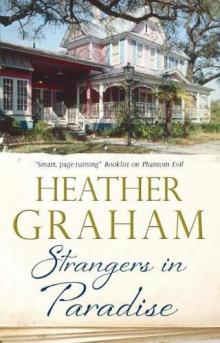 Strangers In Paradise
Strangers In Paradise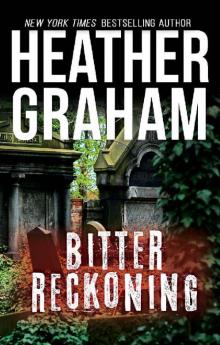 Bitter Reckoning
Bitter Reckoning Krewe of Hunters, Volume 1: Phantom Evil ; Heart of Evil ; Sacred Evil ; The Evil Inside
Krewe of Hunters, Volume 1: Phantom Evil ; Heart of Evil ; Sacred Evil ; The Evil Inside Do You Fear What I Fear?
Do You Fear What I Fear?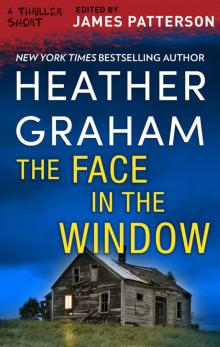 The Face in the Window
The Face in the Window Krewe of Hunters, Volume 3: The Night Is WatchingThe Night Is AliveThe Night Is Forever
Krewe of Hunters, Volume 3: The Night Is WatchingThe Night Is AliveThe Night Is Forever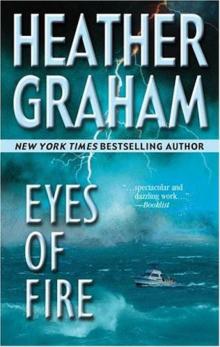 Eyes of Fire
Eyes of Fire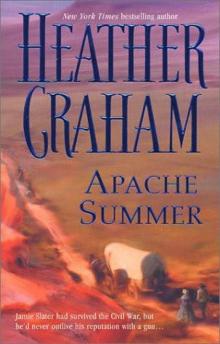 Apache Summer sb-3
Apache Summer sb-3 Sensuous Angel
Sensuous Angel In the Dark
In the Dark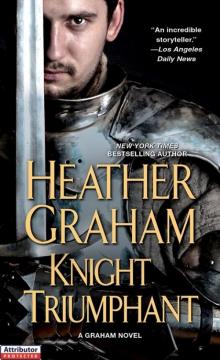 Knight Triumphant
Knight Triumphant Hours to Cherish
Hours to Cherish Tender Deception
Tender Deception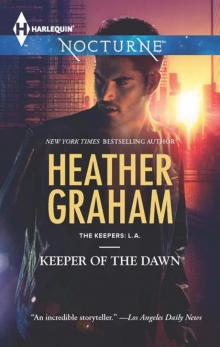 Keeper of the Dawn tkl-4
Keeper of the Dawn tkl-4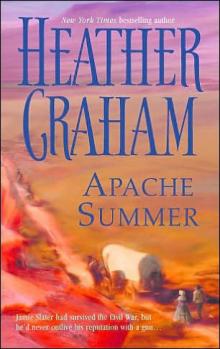 Apache Summer
Apache Summer Between Roc and a Hard Place
Between Roc and a Hard Place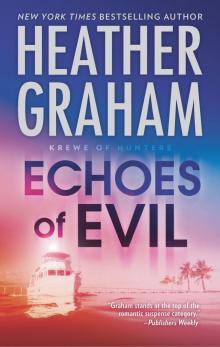 Echoes of Evil
Echoes of Evil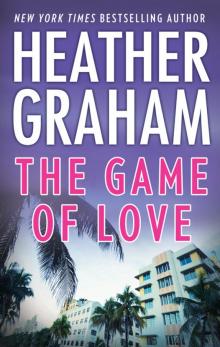 The Game of Love
The Game of Love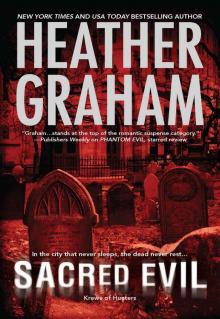 Sacred Evil (Krewe of Hunters)
Sacred Evil (Krewe of Hunters)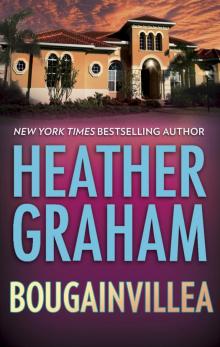 Bougainvillea
Bougainvillea Tender Taming
Tender Taming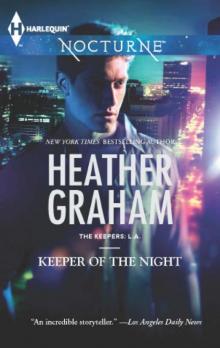 Keeper of the Night (The Keepers: L.A.)
Keeper of the Night (The Keepers: L.A.)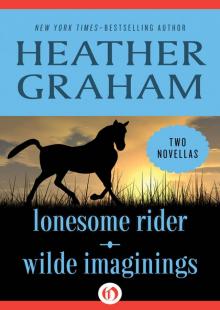 Lonesome Rider and Wilde Imaginings
Lonesome Rider and Wilde Imaginings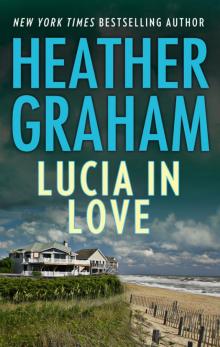 Lucia in Love
Lucia in Love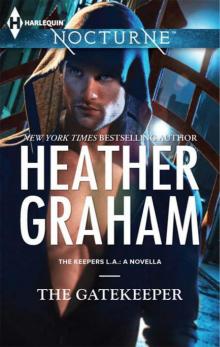 The Gatekeeper
The Gatekeeper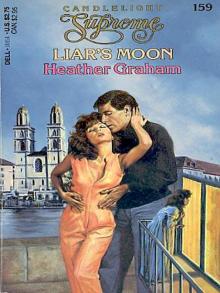 Liar's Moon
Liar's Moon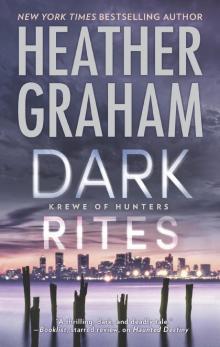 Dark Rites--A Paranormal Romance Novel
Dark Rites--A Paranormal Romance Novel A Season for Love
A Season for Love Krewe of Hunters, Volume 6: Haunted Destiny ; Deadly Fate ; Darkest Journey
Krewe of Hunters, Volume 6: Haunted Destiny ; Deadly Fate ; Darkest Journey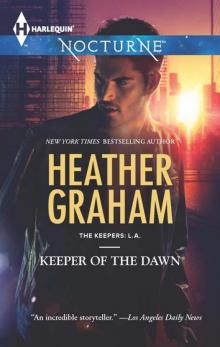 Keeper of the Dawn (The Keepers: L.A.)
Keeper of the Dawn (The Keepers: L.A.)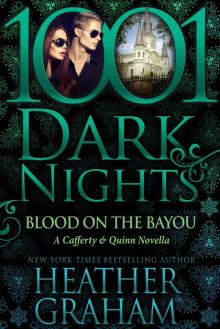 Blood on the Bayou: A Cafferty & Quinn Novella
Blood on the Bayou: A Cafferty & Quinn Novella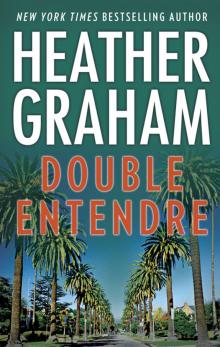 Double Entendre
Double Entendre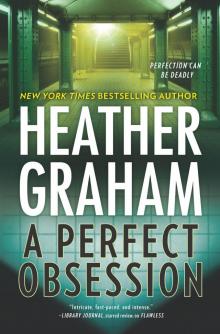 A Perfect Obsession--A Novel of Romantic Suspense
A Perfect Obsession--A Novel of Romantic Suspense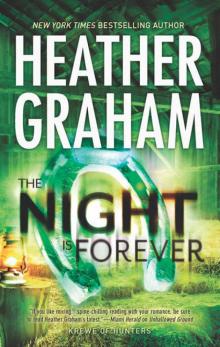 The Night Is Forever koh-11
The Night Is Forever koh-11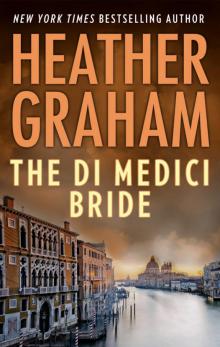 The Di Medici Bride
The Di Medici Bride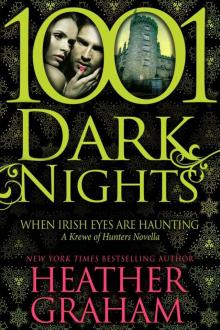 When Irish Eyes Are Haunting: A Krewe of Hunters Novella
When Irish Eyes Are Haunting: A Krewe of Hunters Novella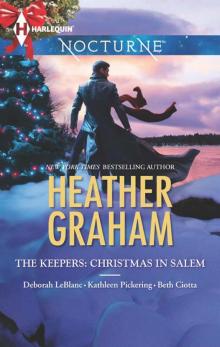 The Keepers: Christmas in Salem: Do You Fear What I Fear?The Fright Before ChristmasUnholy NightStalking in a Winter Wonderland (Harlequin Nocturne)
The Keepers: Christmas in Salem: Do You Fear What I Fear?The Fright Before ChristmasUnholy NightStalking in a Winter Wonderland (Harlequin Nocturne)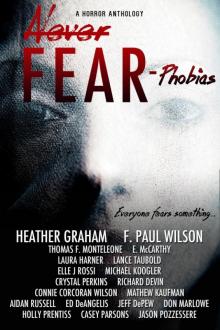 Never Fear
Never Fear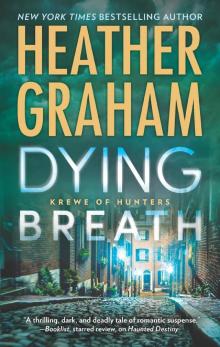 Dying Breath--A Heart-Stopping Novel of Paranormal Romantic Suspense
Dying Breath--A Heart-Stopping Novel of Paranormal Romantic Suspense If Looks Could Kill
If Looks Could Kill This Rough Magic
This Rough Magic Heather Graham's Christmas Treasures
Heather Graham's Christmas Treasures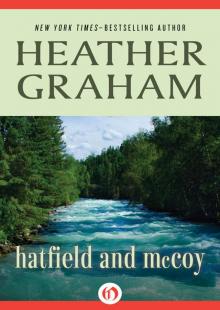 Hatfield and McCoy
Hatfield and McCoy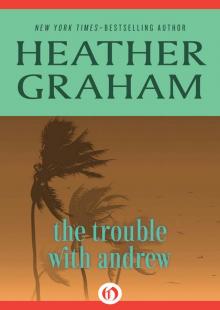 The Trouble with Andrew
The Trouble with Andrew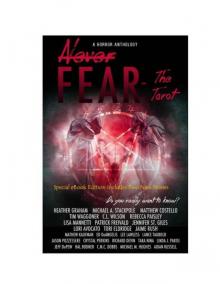 Never Fear - The Tarot: Do You Really Want To Know?
Never Fear - The Tarot: Do You Really Want To Know?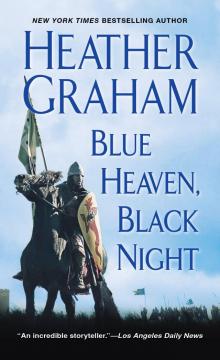 Blue Heaven, Black Night
Blue Heaven, Black Night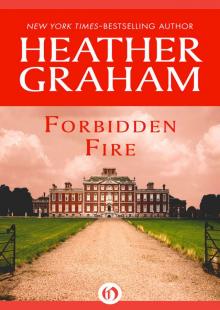 Forbidden Fire
Forbidden Fire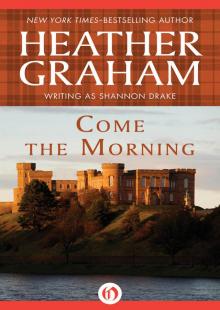 Come the Morning
Come the Morning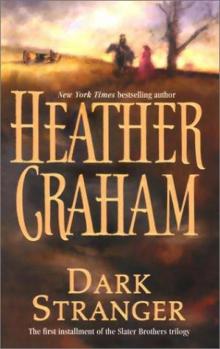 Dark Stranger sb-4
Dark Stranger sb-4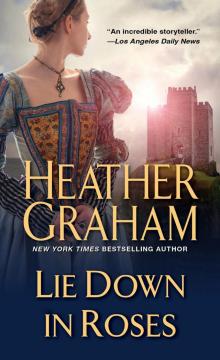 Lie Down in Roses
Lie Down in Roses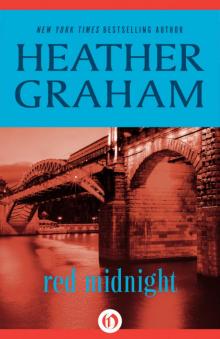 Red Midnight
Red Midnight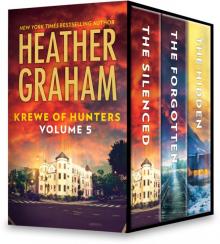 Krewe of Hunters Series, Volume 5
Krewe of Hunters Series, Volume 5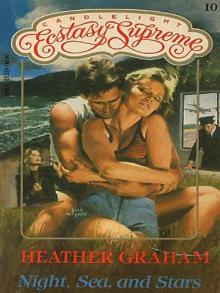 Night, Sea, And Stars
Night, Sea, And Stars Snowfire
Snowfire Quiet Walks the Tiger
Quiet Walks the Tiger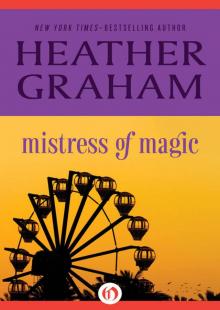 Mistress of Magic
Mistress of Magic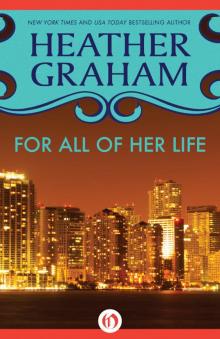 For All of Her Life
For All of Her Life Runaway
Runaway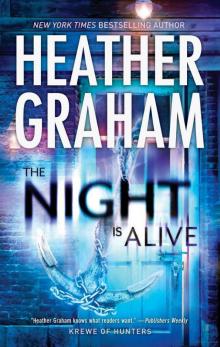 The Night Is Alive koh-10
The Night Is Alive koh-10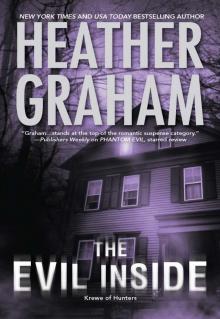 The Evil Inside (Krewe of Hunters)
The Evil Inside (Krewe of Hunters)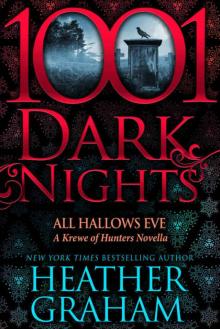 All Hallows Eve: A Krewe of Hunters Novella (1001 Dark Nights)
All Hallows Eve: A Krewe of Hunters Novella (1001 Dark Nights)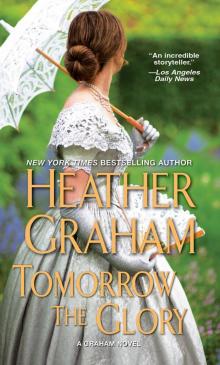 Tomorrow the Glory
Tomorrow the Glory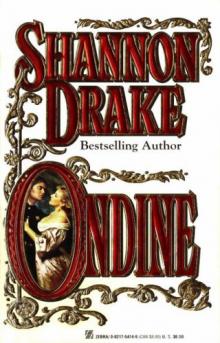 Ondine
Ondine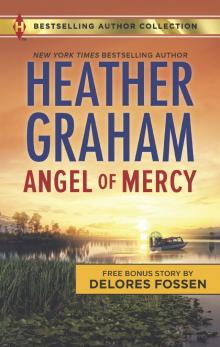 Angel of Mercy & Standoff at Mustang Ridge
Angel of Mercy & Standoff at Mustang Ridge Bride of the Tiger
Bride of the Tiger When Next We Love
When Next We Love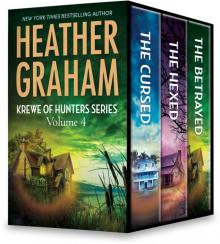 Heather Graham Krewe of Hunters Series, Volume 4
Heather Graham Krewe of Hunters Series, Volume 4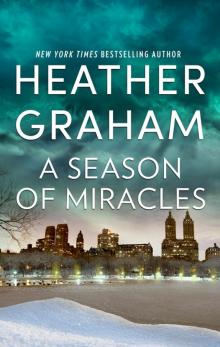 A Season of Miracles
A Season of Miracles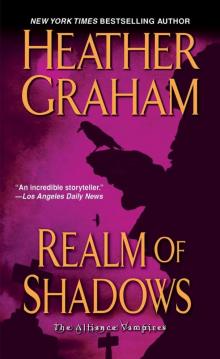 Realm of Shadows (Vampire Alliance)
Realm of Shadows (Vampire Alliance)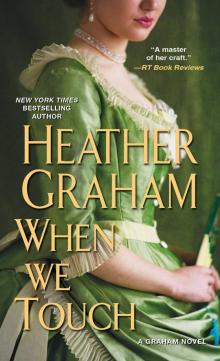 When We Touch
When We Touch Serena's Magic
Serena's Magic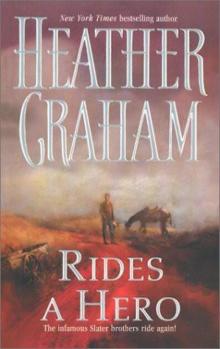 Rides a Hero sb-2
Rides a Hero sb-2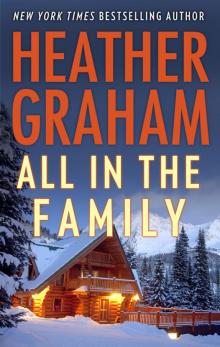 All in the Family
All in the Family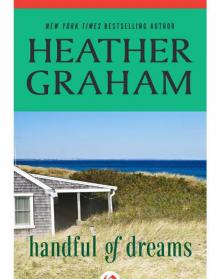 Handful of Dreams
Handful of Dreams A Stranger in the Hamptons
A Stranger in the Hamptons Krewe of Hunters, Volume 2: The Unseen ; The Unholy ; The Unspoken ; The Uninvited
Krewe of Hunters, Volume 2: The Unseen ; The Unholy ; The Unspoken ; The Uninvited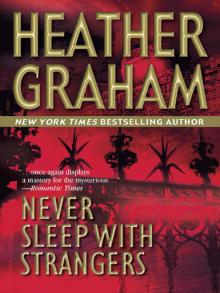 Never Sleep With Strangers
Never Sleep With Strangers Eden's Spell
Eden's Spell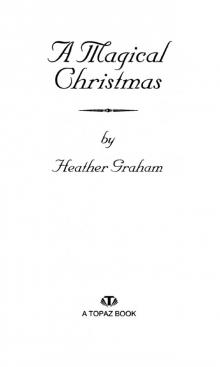 A Magical Christmas
A Magical Christmas Forever My Love
Forever My Love King of the Castle
King of the Castle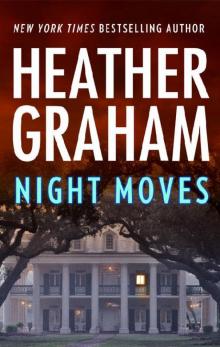 Night Moves (60th Anniversary)
Night Moves (60th Anniversary) The Island
The Island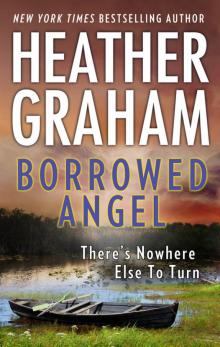 Borrowed Angel
Borrowed Angel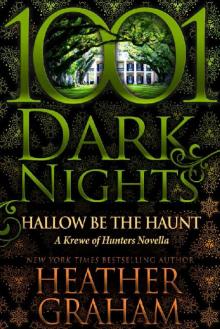 Hallow Be the Haunt: A Krewe of Hunters Novella
Hallow Be the Haunt: A Krewe of Hunters Novella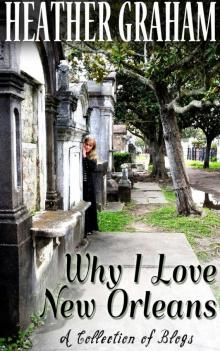 Why I Love New Orleans
Why I Love New Orleans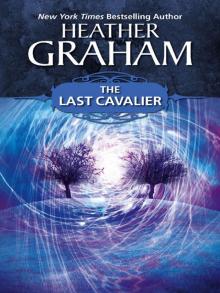 The Last Cavalier
The Last Cavalier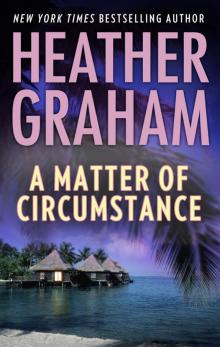 A Matter of Circumstance
A Matter of Circumstance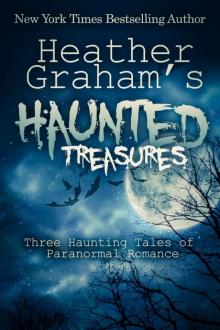 Heather Graham's Haunted Treasures
Heather Graham's Haunted Treasures Tempestuous Eden
Tempestuous Eden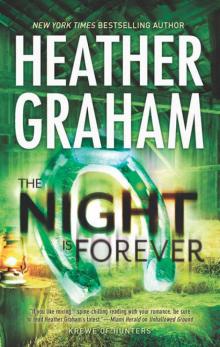 Krewe 11 - The Night Is Forever
Krewe 11 - The Night Is Forever